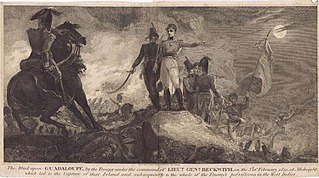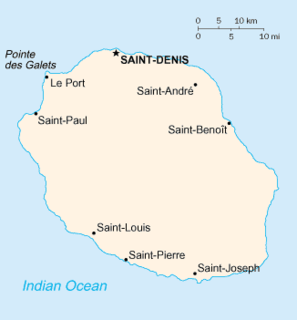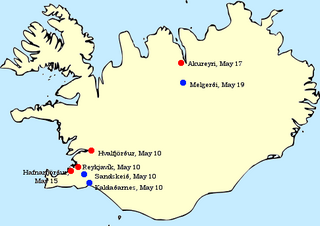 W
WThe Allied invasion of Italy was the Allied amphibious landing on mainland Italy that took place on 3 September 1943 during the early stages of the Italian Campaign of World War II. The operation was undertaken by General Sir Harold Alexander's 15th Army Group and followed the successful invasion of Sicily. The main invasion force landed around Salerno on 9 September on the western coast in Operation Avalanche, while two supporting operations took place in Calabria and Taranto.
 W
WThe Second Anglo-Afghan War was a military conflict fought between the British Raj and the Emirate of Afghanistan from 1878 to 1880, when the latter was ruled by Sher Ali Khan of the Barakzai dynasty, the son of former Emir Dost Mohammad Khan. The war was part of the Great Game between the British and Russian empires.
 W
WThe Third Anglo-Afghan War, also known as the Third Afghan War, the British-Afghan War of 1919 and in Afghanistan as the War of Independence, began on 6 May 1919 when the Emirate of Afghanistan invaded British India and ended with an armistice on 8 August 1919. The war resulted in the Afghans winning back control of foreign affairs from Britain, and the British recognizing Afghanistan as an independent nation. According to British author Michael Barthorp, it was also a minor strategic victory for the British because the Durand Line was reaffirmed as the border between Afghanistan and the British Raj, and the Afghans agreed not to foment trouble on the British side. However, Afghans who were on the British side of the border did cause concerns due to revolts.
 W
WThe Anglo-Zulu War was fought in 1879 between the British Empire and the Zulu Kingdom. Following the Constitution Act, 1867 for the federation in Canada, by Lord Carnarvon, it was thought that similar political effort, coupled with military campaigns, might succeed with the African kingdoms, tribal areas and Boer republics in South Africa. In 1874, Sir Bartle Frere was sent to South Africa as High Commissioner for the British Empire to effect such plans. Among the obstacles were the armed independent states of the South African Republic and the Kingdom of Zululand.
 W
WThe British expedition to Tibet, also known as the British invasion of Tibet or the Younghusband expedition to Tibet began in December 1903 and lasted until September 1904. The expedition was effectively a temporary invasion by British Indian forces under the auspices of the Tibet Frontier Commission, whose purported mission was to establish diplomatic relations and resolve the dispute over the border between Tibet and Sikkim. In the nineteenth century, the British had conquered Burma and Sikkim, with the whole southern flank of Tibet coming under the control of the British Raj. Tibet, ruled by the Dalai Lama under the Ganden Phodrang government, was the only Himalayan state under Chinese instead of British influence.
 W
WOperation Dragoon was the code name for the landing operation of the Allied invasion of Provence on 15 August 1944. The operation was initially planned to be executed in conjunction with Operation Overlord, the Allied landing in Normandy, but the lack of available resources led to a cancellation of the second landing. By July 1944 the landing was reconsidered, as the clogged-up ports in Normandy did not have the capacity to adequately supply the Allied forces. Concurrently, the French High Command pushed for a revival of the operation that would include large numbers of French troops. As a result, the operation was finally approved in July to be executed in August.
 W
WThe invasion of Elba, codenamed Operation Brassard, was part of the Italian campaign during the Second World War. The invasion was carried out by Free French Forces supported by British and American ships and aircraft.
 W
WThe British occupation of the Faroe Islands in World War II, also known as Operation Valentine, was implemented immediately following the German invasion of Denmark and Norway. It was a small component of the roles of Nordic countries in World War II.
 W
WThe First Anglo-Afghan War was fought between the British Empire and the Emirate of Afghanistan from 1839 to 1842. Initially, the British successfully intervened in a succession dispute between emir Dost Mohammad (Barakzai) and former emir Shah Shujah (Durrani), whom they installed upon conquering Kabul in August 1839. The main British Indian force occupying Kabul along with their camp followers, having endured harsh winters as well, was almost completely annihilated during its 1842 retreat from Kabul. The British then sent an Army of Retribution to Kabul to avenge their defeat, and having demolished parts of the capital and recovered prisoners they left Afghanistan altogether by the end of the year. Dost Mohamed returned from exile in India to resume his rule.
 W
WThe Invasion of Guadeloupe was a British amphibious operation fought between 28 January and 6 February 1810 over control of the Caribbean island of Guadeloupe during the Napoleonic Wars. The island was the final remaining French colony in the Americas, following the systematic invasion and capture of the others during 1809 by British forces. During the Napoleonic Wars, the French colonies had provided protected harbours for French privateers and warships, which could prey on the numerous British trade routes in the Caribbean and then return to the colonies before British warships could react. In response, the British instituted a blockade of the islands, stationing ships off every port and seizing any vessel that tried to enter or leave. With trade and communication made dangerous by the British blockade squadrons, the economies and morale of the French colonies began to collapse, and in the summer of 1808 desperate messages were sent to France requesting help.
 W
WThe Invasion of Guadeloupe was the last conflict between French and British forces during the Napoleonic Wars, and took place after Napoleon's defeat at Waterloo.
 W
WThe Invasion of Île Bonaparte was an amphibious operation in 1810 that formed an important part of the British campaign to blockade and capture the French Indian Ocean territories of Île Bonaparte and Isle de France during the Napoleonic Wars. These islands formed a fortified base for a French frigate squadron under Commodore Jacques Hamelin to raid British convoys of East Indiamen travelling between Britain and British India. Hamelin's ships had destroyed two convoys the previous year despite the attention of a squadron of Royal Navy ships under Commodore Josias Rowley. Rowley had responded by raiding the fortified anchorage of Saint Paul on Île Bonaparte and capturing one of Hamelin's frigates and two captured East Indiamen.
 W
WThe invasion of Iceland by the Royal Navy and Royal Marines occurred on 10 May 1940, during World War II. The invasion was performed because the British government feared that Iceland would be used by the Germans, who had recently overrun Denmark, which was in personal union with Iceland and which had previously been largely responsible for Iceland's foreign policy. The Government of Iceland issued a protest, charging that its neutrality had been "flagrantly violated" and "its independence infringed".
 W
WThe Anglo-Soviet invasion of Iran, also known as the Anglo-Soviet invasion of Persia, was the joint invasion of Iran by the United Kingdom and the Soviet Union in August 1941. The invasion, codenamed Operation Countenance, was largely unopposed by the numerically and technologically inferior Iranian forces. The multi-pronged coordinated invasion took place along Iran's borders with modern Iraq, Azerbaijan and Turkmenistan with fighting beginning on 25 August and ending on 31 August when the Iranian government formally agreed to surrender, having already agreed to a ceasefire on 30 August.
 W
WThe 2003 invasion of Iraq was the first stage of the Iraq War. The invasion phase began on 19 March 2003 (air) and 20 March 2003 (ground) and lasted just over one month, including 26 days of major combat operations, in which a combined force of troops from the United States, the United Kingdom, Australia and Poland invaded Iraq. This early stage of the war formally ended on 1 May 2003 when U.S. President George W. Bush declared the "end of major combat operations", after which the Coalition Provisional Authority (CPA) was established as the first of several successive transitional governments leading up to the first Iraqi parliamentary election in January 2005. U.S. military forces later remained in Iraq until the withdrawal in 2011.
 W
WThe Invasion of Isle de France was a complicated but successful amphibious operation in the Indian Ocean, launched in November 1810 during the Napoleonic Wars. During the operation, a substantial British military force was landed by the Royal Navy at Grand Baie on Isle de France. Marching inland against weak French opposition, the British force was able to overwhelm the defenders in a series of minor engagements, culminating in the capture of the island's capital Port Napoleon and the surrender of Charles Decaen, the French governor. The surrender eliminated the last French territory in the Indian Ocean and among the military equipment captured were five French Navy frigates and 209 heavy cannon. Isle de France was retained by Britain at the end of the war under the name of Mauritius and remained part of the British Empire until 1968.
 W
WThe invasion of Java in 1811 was a successful British amphibious operation against the Dutch East Indian island of Java that took place between August and September 1811 during the Napoleonic Wars. Originally established as a colony of the Dutch Republic, Java remained in Dutch hands throughout the French Revolutionary and Napoleonic Wars, during which time the French invaded the Republic and established the Batavian Republic in 1795, and the Kingdom of Holland in 1806. The Kingdom of Holland was annexed to the First French Empire in 1810, and Java became a titular French colony, though it continued to be administered and defended primarily by Dutch personnel.
 W
WThe invasion of Martinique of 1809 was a successful British amphibious operation against the French West Indian island of Martinique that took place between 30 January and 24 February 1809 during the West Indies Campaign 1804–1810 of the Napoleonic Wars. Martinique, like nearby Guadeloupe, was a major threat to British trade in the Caribbean, providing a sheltered base from which privateers and French Navy warships could raid British shipping and disrupt the trade routes that maintained the British economy. The islands also provided a focus for larger scale French operations in the region and in the autumn of 1808, following the Spanish alliance with Britain, the Admiralty decided to order a British squadron to neutralise the threat, beginning with Martinique.
 W
WThe Occupation of Iceland during World War II began with a British invasion intent on occupying and denying Iceland to Germany. The military operation codenamed Operation Fork was conducted by the Royal Navy and Royal Marines. In time, the British forces were replaced by Canadian and later American forces, despite the fact that the United States was not yet in the war.
 W
WThe Battle of Okinawa , codenamed Operation Iceberg, was a major battle of the Pacific War fought on the island of Okinawa by United States Marine and Army forces against the Imperial Japanese Army. The initial invasion of Okinawa on April 1, 1945, was the largest amphibious assault in the Pacific Theater of World War II. The Kerama Islands surrounding Okinawa were preemtively captured on March 26th, (L-6) by the 77th Infantry Division. The 98-day battle lasted from March 26th until July 2nd, 1945. After a long campaign of island hopping, the Allies were planning to use Kadena Air Base on the large island of Okinawa as a base for Operation Downfall, the planned invasion of the Japanese home islands, 340 mi (550 km) away.
 W
WOperation Overlord was the codename for the Battle of Normandy, the Allied operation that launched the successful invasion of German-occupied Western Europe during World War II. The operation was launched on 6 June 1944 with the Normandy landings. A 1,200-plane airborne assault preceded an amphibious assault involving more than 5,000 vessels. Nearly 160,000 troops crossed the English Channel on 6 June, and more than two million Allied troops were in France by the end of August.
 W
WThe British invasions of the River Plate were a series of unsuccessful British attempts to seize control of areas in the Spanish colonial Viceroyalty of the Río de la Plata that were located around the Río de la Plata in South America — in present-day Argentina and Uruguay. The invasions took place between 1806 and 1807, as part of the Napoleonic Wars, when Spain was an ally of Napoleonic France.
 W
WThe War in Afghanistan stems from the United States invasion of Afghanistan on 7 October 2001, when the United States of America and its allies successfully drove the Taliban from power in order to deny Al-Qaeda a safe base of operations in Afghanistan. Since the initial objectives were completed, a coalition of over 40 countries formed a security mission in the country called International Security Assistance Force, of which certain members were involved in military combat allied with Afghanistan's government. The war has afterwards mostly consisted of Taliban insurgents fighting against the Afghan Armed Forces and allied forces; the majority of ISAF/RS soldiers and personnel are American. The war is code named by the US as Operation Enduring Freedom (2001–14) and Operation Freedom's Sentinel (2015–present); it is the longest war in US history.